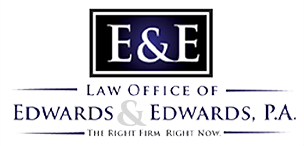Homeowners put their heart and money into their house to make it a home and losing the place they hold dear is devastating. It may seem like there is no way out of foreclosure, but bankruptcy could be a solution. Keep reading to learn more.
How Does Bankruptcy Work?
To understand how bankruptcy can or cannot prevent foreclosure, it’s important to understand the basic mechanics first. In general, bankruptcy is a legal process that provides debt relief while protecting the creditor’s financial interests as well as the debtor’s. The United States Bankruptcy Code includes several types of bankruptcy that are available to corporations and individuals alike.
For homeowners, Chapter 7 is one of the most common types of bankruptcy. This process, known as liquidation, facilitates the forfeiture and sale of property and assets to create funds that are designated to the creditor as repayment. The debtor’s property is divided into two groups: exempt and nonexempt. Exempt property will not be subject to liquidation, but anything deemed nonexempt could be liquidated. However, a Chapter 7 will only temporarily stop foreclosure.
Another common bankruptcy filing for individuals is Chapter 13. This type of bankruptcy allows the debtor to keep their property and instead requires them to create a repayment plan which must result in full repayment within three or five years. So, during Chapter 13 no property is lost to liquidation.
Both Chapters 7 and 13 results in debt relief and discharge, but there are some debts that even the bankruptcy court cannot erase. Student loans, child support, and other financial obligations are not dischargeable in court. The court will, however, issue an automatic stay which is a court order to stop the creditors from pursuing collections.
Foreclosure
Foreclosure can occur before bankruptcy or because of it depending on the situation. Homeowners must miss several months of their mortgage payments before the lender pursues legal action. Typically, lenders start the foreclosure process to sell the house and get the money they are owed.
Lenders must notify the homeowner of the legal action against them. Between the initial action and actual foreclosure sale, there is a period of time when homeowners can find other arrangements or try to stop the sale.
Thanks to the automatic stay, some homeowners may be able to postpone or even stop a foreclosure on their house. Once the debtor files for bankruptcy, the court issues the automatic stay. From that point on, creditors are not allowed to continue collecting from the debtor.
If the home is already scheduled for sale, an automatic stay will delay the sale for at least 90 days unless the creditor/lender successfully presents a request to lift the stay and proceed with the foreclosure. Lenders reserve the right to file for foreclosure but they do not have the right to violate an automatic stay.
Using the Processing Period Wisely
The time between the beginning of the foreclosure and the sale is an opportunity to take action and protect your home. During this period, debtors can file for bankruptcy and postpone the foreclosure. This can allow the debtor time to strategize with a legal representative.
Additionally, filing for Chapter 13 bankruptcy can give debtors the chance to repay their debt and prevent foreclosure altogether. Debtors can start making their regular monthly mortgage payments again and have 36-60 months to cure arrears. Or, Debtors may seek a modification of the mortgage through the Mortgage Modification Mediation program through the bankruptcy court. In some cases, the court may discharge smaller loans which means small mortgages and other financial obligations would be gone giving the debtor time to catch up with their mortgage payments.
This window of opportunity is short, and using it wisely could mean keeping your house. However, it's crucial that you entrust your case to a legal professional.
How Edwards & Edwards, P.A. Can Help
If you are facing foreclosure and wonder if bankruptcy can provide debt relief, Edwards & Edwards, P.A. can help. We are a sister-owned, family-operated law firm run entirely by women. Our team is well respected in the community and known for excellence. Entrust your case to a firm you can trust. Choose Edwards & Edwards, P.A.
Schedule your consultation with our bankruptcy attorneys in Jacksonville today for any questions! We look forward to working with you.


